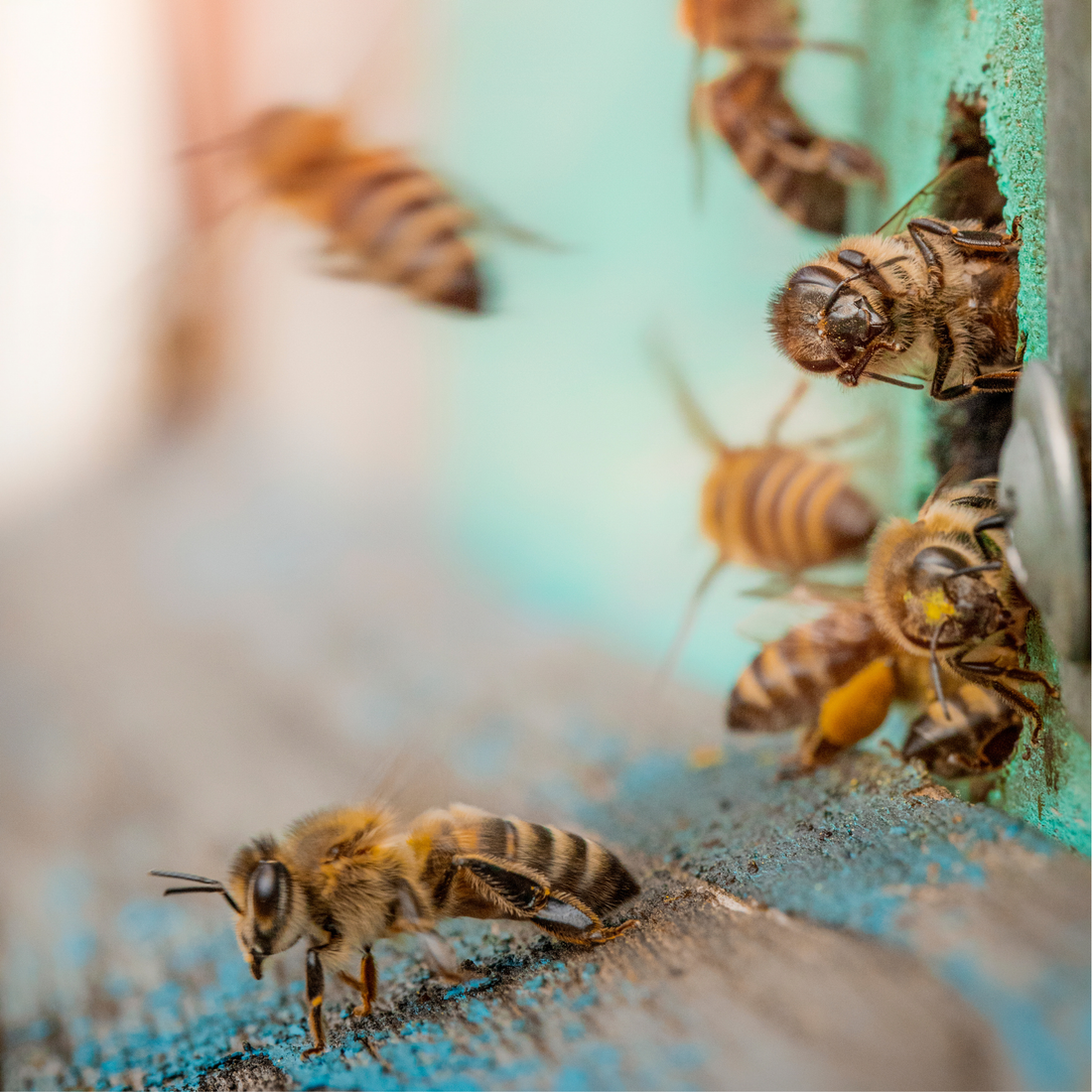Why do bees make honey?


Ever wondered why bees go to all that effort to make honey? It’s not just for our toast and tea. For the bees, honey is life. It’s fuel, food, and survival - a pantry they stock for the cold, flowerless months when nature’s nectar tap is turned off.
Let’s take a closer look at why these busy little creatures work so tirelessly to keep their honeycombs full.
The main reason bees make honey is simple: they need it to eat, especially in winter, when flowers are gone and nectar isn’t available. It’s their energy source, their fuel for long flights, and their insurance policy against the chill of winter.
Honey is packed with:
Honey is the perfect natural superfood, built to last. It’s not just about getting through winter, it’s about thriving in it.
Making honey is a serious craft, perfected over millions of years. Here’s how it works:
Nectar Collection – Bees collect nectar from flowers using their long tongues, storing it in their “honey stomachs.”
Enzyme Magic – On the way back to the hive, enzymes in their honey stomachs start breaking down the nectar’s complex sugars.
Bee-to-Bee Transfer – Back at the hive, forager bees pass the nectar to house bees, who chew, process, and deposit it into the honeycomb.
Evaporation – The bees fan their wings to evaporate excess moisture, thickening the nectar into honey.
Sealing the Deal – Once the honey is just right, they seal each cell with a cap of beeswax, locking in freshness.
It takes around 300 bees to make just one teaspoon of honey, a true testament to their teamwork and dedication.
Bees don’t just make honey for a rainy day, they make it for an entire season. In the wild, a single hive can consume 60-80 pounds of honey over winter. That’s a lot of hard work!
Honey helps keep the hive warm, powers the queen through the cold months, and fuels the hive’s growth when spring finally arrives. It’s a long-term survival strategy, perfected by generations of bees.
When beekeepers harvest honey, they leave enough for the bees or provide a natural sugar substitute if needed. Ethical beekeepers ensure the hive is never left short, respecting the bees’ needs first.
At Hilltop Honey, we believe in ethical beekeeping, it’s all about balance, care, and respect for the little creatures that make our world bloom.
Bees don’t just make honey. They’re also some of the world’s most important pollinators, responsible for a third of our food. So, every jar of honey you enjoy is also a thank you to the bees for their incredible work.
So, why do bees make honey? It’s their superfood, made to fuel the hive all year long. They turn flower nectar into a long-lasting, nutrient-rich food that’s perfect for surviving the winter chill. It’s a sweet reminder of just how clever nature can be.
If you’re inspired by the bees’ hard work and want to taste the fruits of their labour, explore our range of pure, raw honeys — straight from the hive to your home.